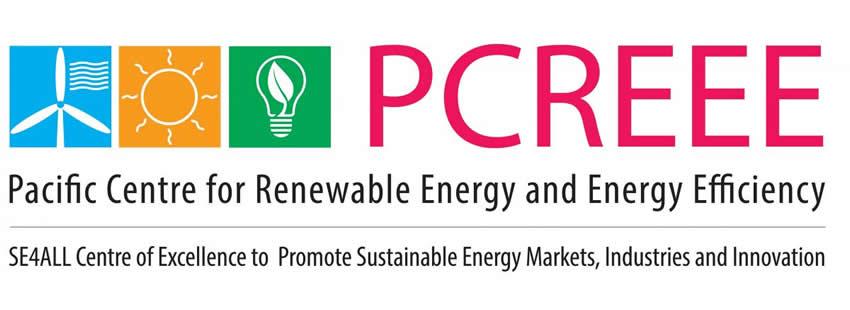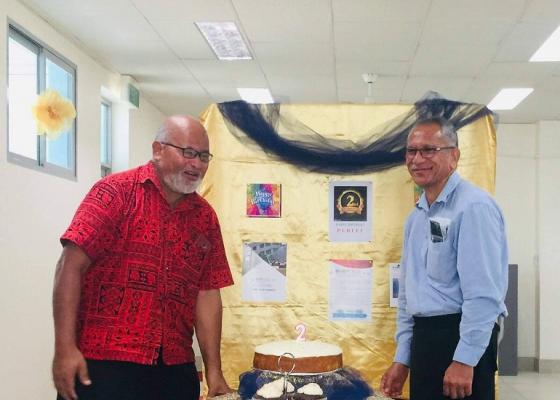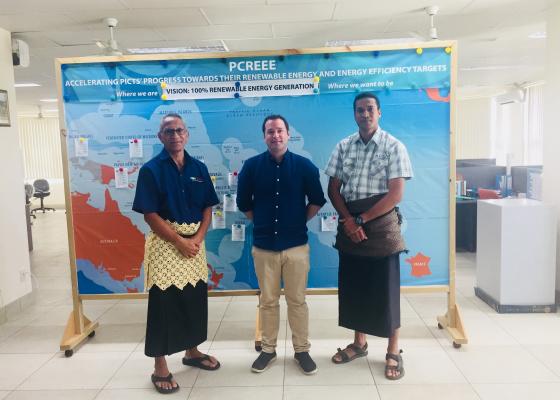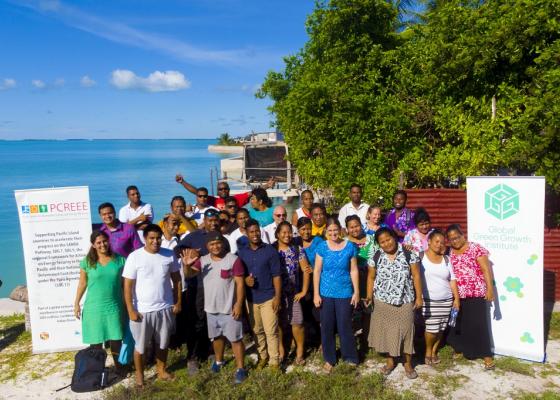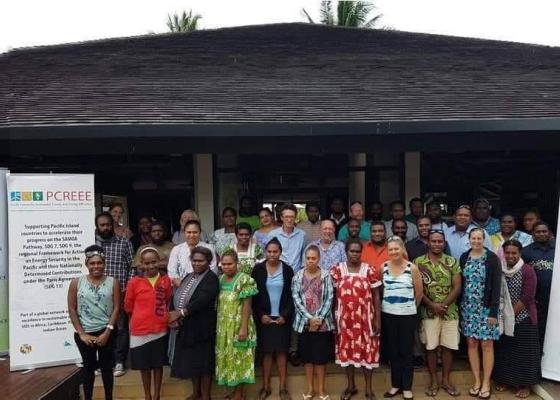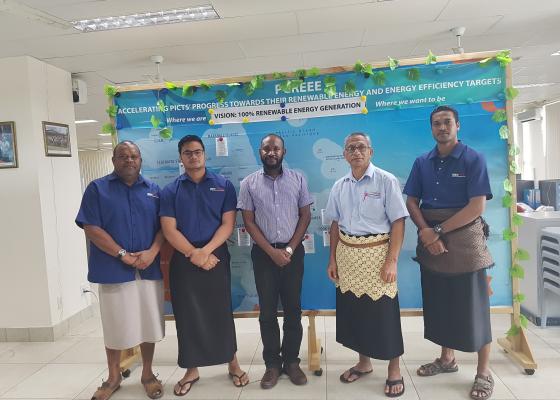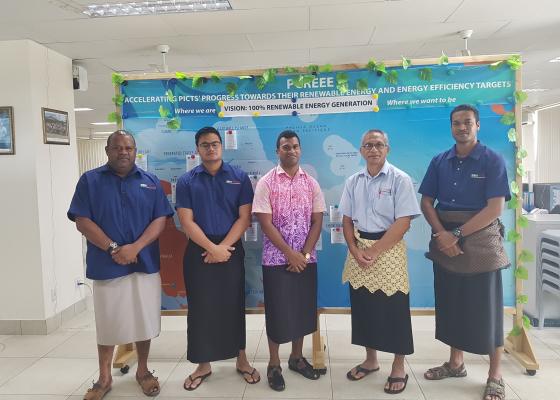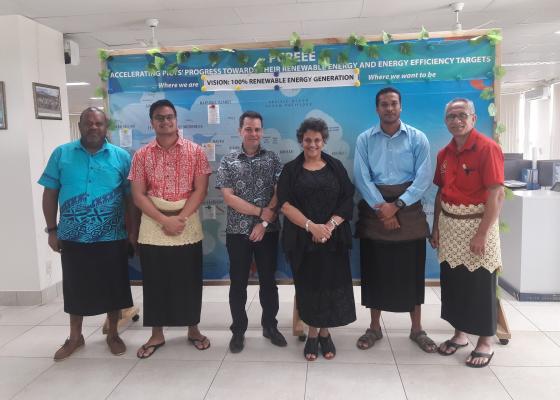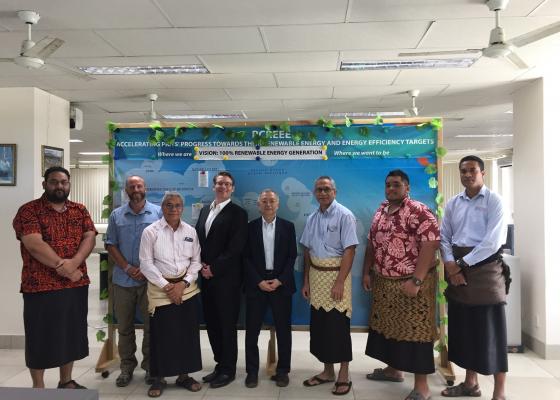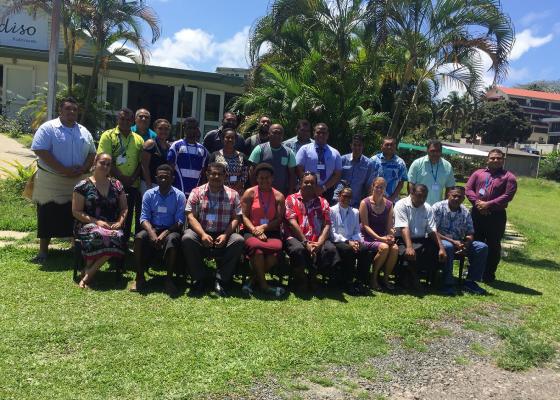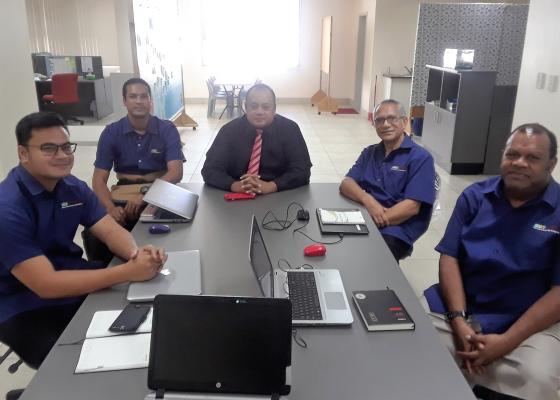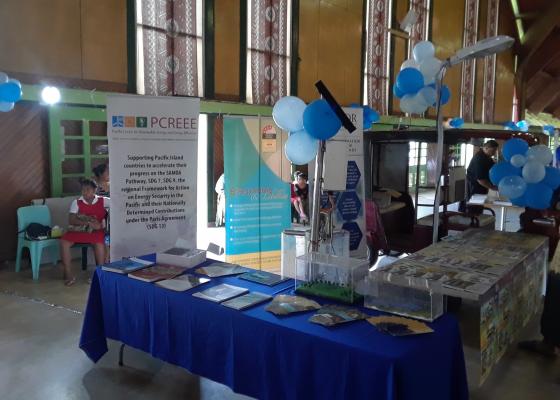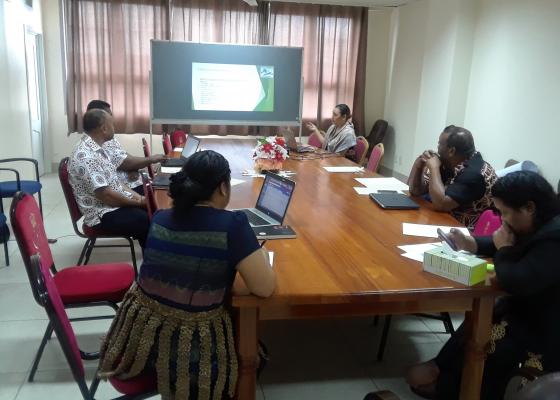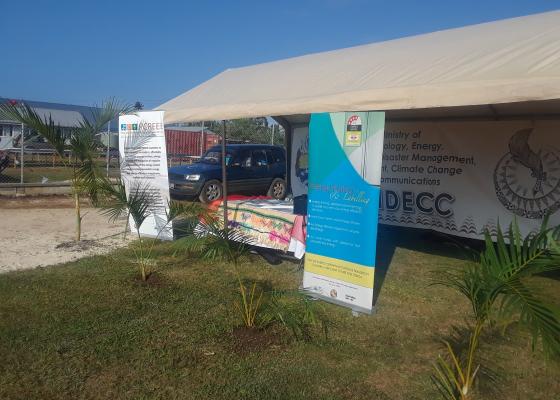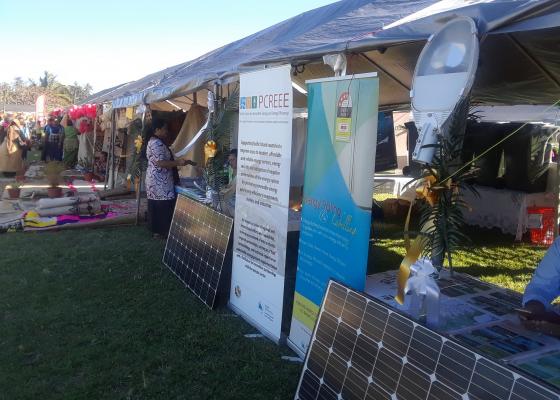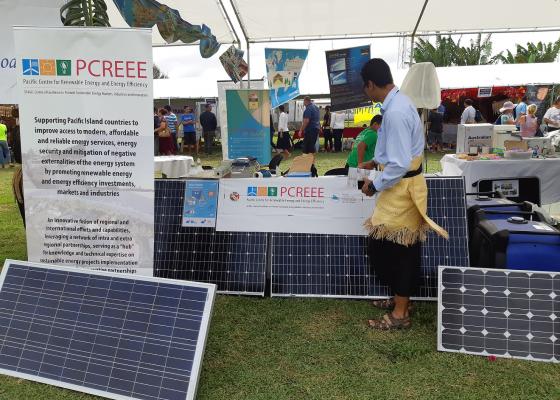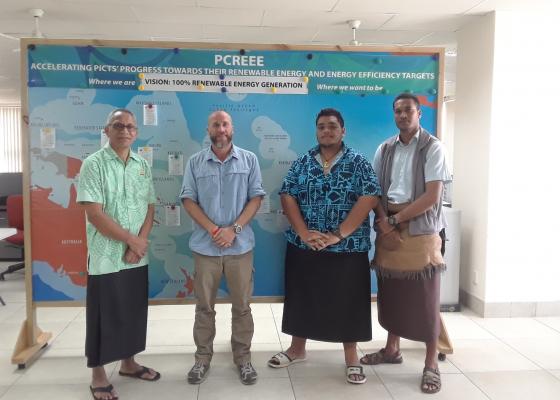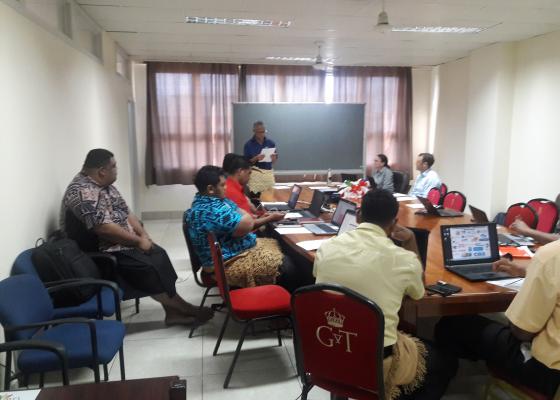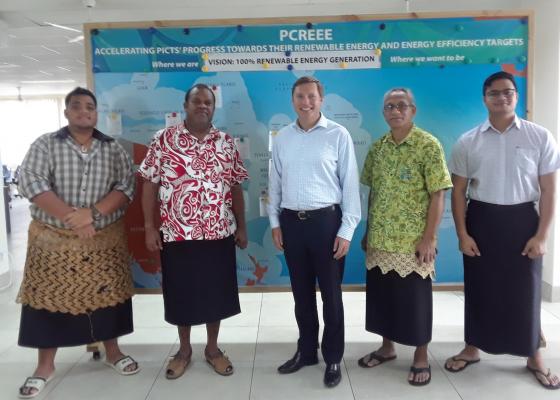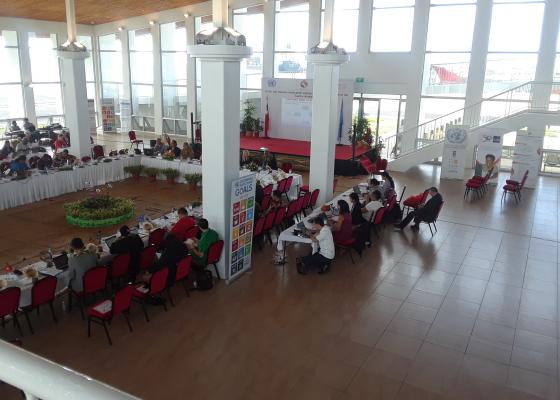Kiribati strengthens Energy Efficiency capacity
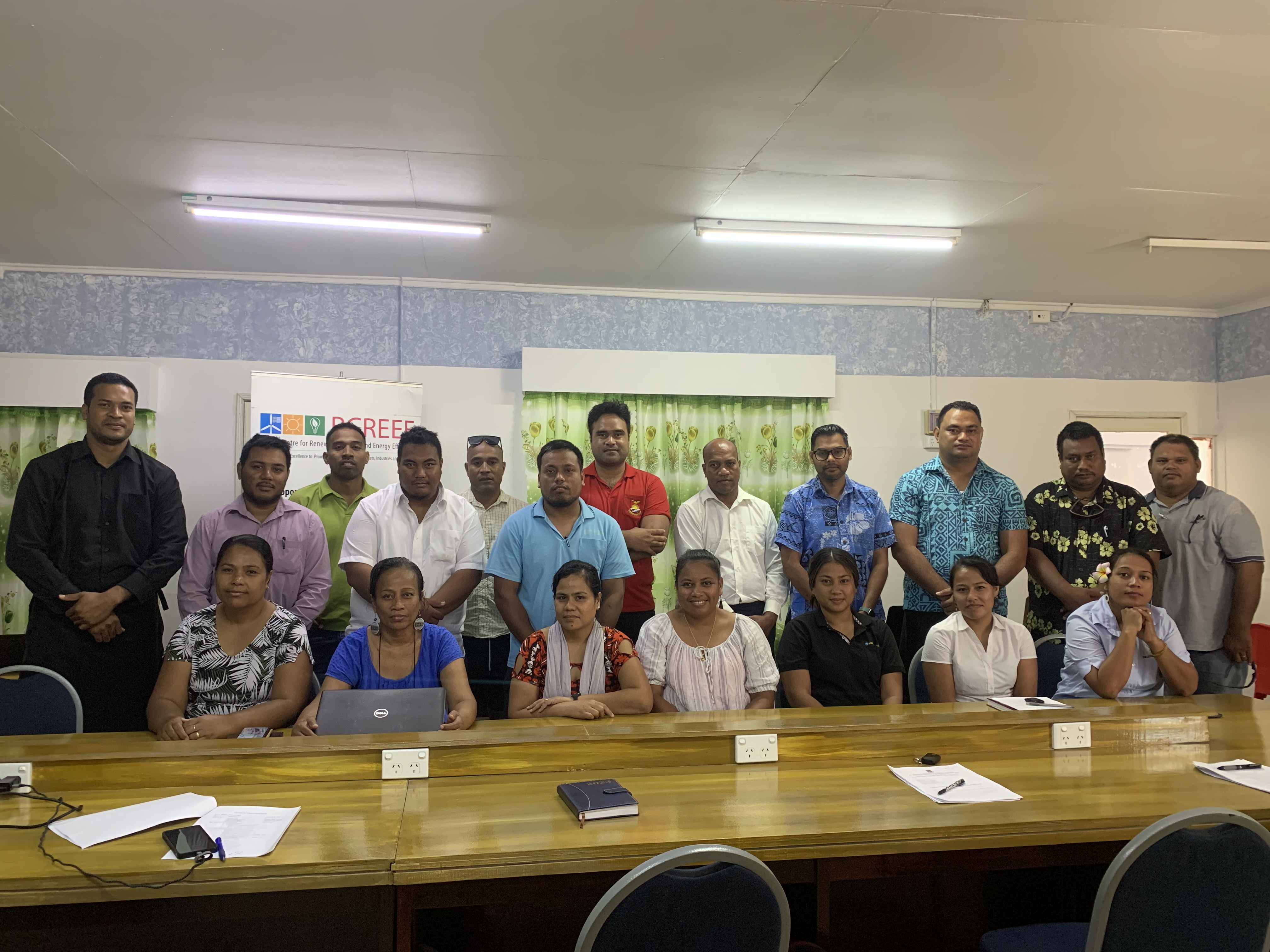
Kiribati has joined other Pacific Islands countries and territories (PICTs) to enact legislation to facilitate an accelerated transition to renewable energy and energy efficiency.
This follows an outcome of the 4th Pacific Energy Ministers Meeting in Samoa in 2019 where leaders urged PICTs to enact the necessary legislation to facilitate achieving the National Determined Contribution (NDC) targets.
“The endorsement of this Energy Act is a milestone for Kiribati as it provides a legal framework and supports regulations that could accelerate our energy transition to achieve our national energy targets set out in the Kiribati Integrated Energy Road Map (KIER) and in the Nationally Determined Contribution (NDC)”, explained Agnes Nikoraa Naare, Acting Deputy Secretary for the Ministry of Infrastructure and Sustainable Energy (MISE) of Kiribati.
The Kiribati Energy Act of 2022 includes a section on Minimum Energy Performance Standards and Labelling (MEPSL) which legislates importers of electrical appliances such as air conditioners, refrigerators, and lighting. This is to ensure proper labelling with estimated energy consumption that must be within the minimum performance standards adopted by the country for each appliance. Besides giving consumers the option to choose more energy-efficient appliances, the MEPSL enables border control officers to stop inefficient and non-compliance products from entering the market.
“The MEPSL is one of the key components as stipulated under Part VIII of the Act and it is currently prioritized by the Government of Kiribati to implement. Through the assistance of NDC-hub, the Pacific Centre for Renewable Energy Efficiency (PCREEE) has supported Kiribati through the Ministry to ensure MEPSL has the necessary institutional, monitoring and evaluation structure in place as well as the technical expertise to administer and enforce the Energy Act 2022 effectively,” Agnes Nikoraa Naare added.
Through a collaboration between the Pacific NDC Hub and the PCREEE, a three-day training workshop was conducted in March this year with government officials, business communities and consumers to explain key aspects of the MEPSL operation such as registration, product inspection and monitoring. The training is hoped to enhance the skills of government officials (Energy and Custom Divisions) to administer and enforce the MEPSL regulation under the Energy Act 2022 and to train the participants on the relevant procedures to be undertaken prior to the importation of regulated appliances. The officials and stakeholders will also learn to conduct hands-on training with the online registration form using the Pacific Appliance Database (PAD).
Lessons and experiences of MEPSL training and enforcement in Fiji, Samoa and Vanuatu were also shared with participants to gain insights into other similar programs.
Vishal Prasad of the Fiji Department of Energy said Fiji’s MEPSL programme, which was piloted in 2003 has prevented Fiji from becoming a dumping ground for inefficient appliances. Based on calculations by Energy Efficient Strategies Ltd, the MEPSL program has saved consumers on average 9.3 million kWh in electricity which equates to approximately 1,992 tons of diesel fuel and mitigation of 2,456 tons of CO2e in Green House Gas emissions.
Mose Tasesa of the Department of Energy in Samoa shared further insights into Samoa’s MEPSL program. “In Samoa, an Energy Efficiency Monitoring Team (EEMT) is responsible for conducting quarterly shop audit inspections of retailers and companies. Through these inspections, the EEMT successfully disposed of 7 unregulated refrigerators and 10 unregulated air conditioning units”.
Vanuatu started enforcing its MEPSL in 2017 and has identified staff turnovers and lack of funds for awareness programmes as among the key challenges. Vanuatu is also considering imposing tax incentives on the purchase of more energy-efficient appliances.
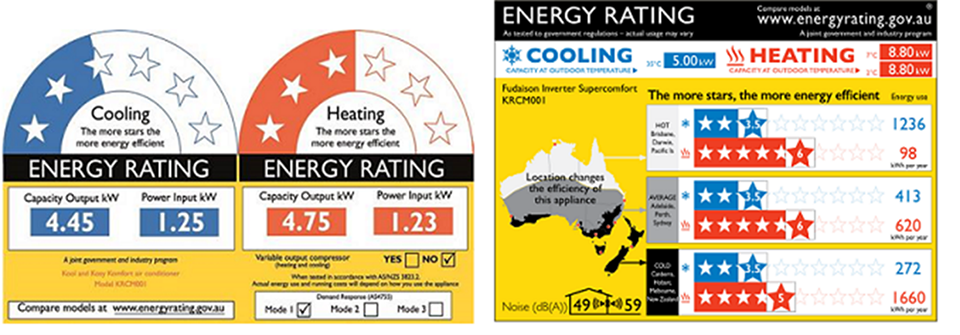
Contacts
Solomone Fifita, Manager PCREEE – solomonef@spc.int
Useful links:
http://electricitycommission.to/ https://gem.spc.int/projects/pcreee https://www.gn-
Tags
- New Zealand Ministry of Foreign Affairs and Trade (MFAT)
- Regional Pacific Nationally Determined Contributions Hub (NDC Hub)
- Pacific Centre for Renewable Energy and Energy Efficiency (PCREEE)
- energy efficiency
- Minimum Energy Performance Standards and Labelling (MEPSL
Original Link: Kiribati strengthens energy efficiency capacity | SPC Geoscience, Energy and Maritime Division
Upcoming Events
-
03/25/2026 to 03/26/2026
-
03/26/2026 to 03/27/2026
-
04/09/2026 to 04/10/2026
-
04/20/2026 to 04/24/2026
-
04/27/2026

